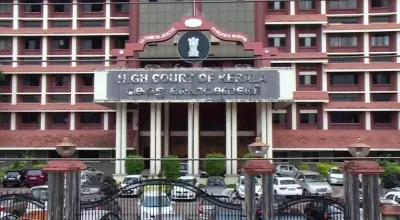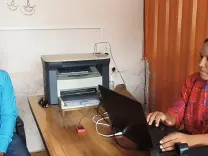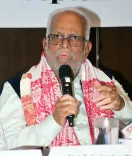Did the Kerala HC Allow a Life Sentence Prisoner to Attend a Law Internship?

Synopsis
Key Takeaways
- Kerala High Court emphasizes education rights for inmates.
- Life convict granted 10 days leave for internship.
- The decision reflects a progressive judicial approach.
- Conditions for leave include a bond of Rs 1 lakh.
- Precedent set in Pattakka Suresh Babu case.
Kochi, Sep 8 (NationPress) The Kerala High Court on Monday approved a 10-day leave for a life convict currently enrolled in a three-year LL.B. program, allowing him to participate in his mandatory internship set from September 10 to 16.
Justice P.V. Kunhikrishnan, while granting the plea, referenced the precedent established in Pattakka Suresh Babu v. State of Kerala.
The ruling highlighted that inmates wishing to pursue higher education should be permitted to attend online classes, with leave granted for internal exams or other academic needs.
"I firmly believe that the petitioner deserves leave based on the aforementioned division bench's observations," the court stated in its ruling.
Currently serving life imprisonment at the Central Prison and Correctional Centre in Kannur after being convicted under Section 302 of the Indian Penal Code for murder, the petitioner has enrolled in the LL.B. program at KMCT Law College, Kuttippuram, and has been attending online classes.
Now in his fourth semester, he is required to complete a one-week in-person internship as part of his course.
After his initial request to the prison authorities was ignored, he sought relief from the High Court.
In granting his request, the court instructed the Jail Superintendent to permit the convict 10 days of ordinary leave, subject to specific conditions.
The order mandates the petitioner to execute a bond of Rs 1 lakh with two solvent sureties of the same amount to the satisfaction of the prison officials before he can take the leave.
This ruling emphasizes the judiciary's commitment to the right to education, even for those serving life sentences, as long as precautions are taken to ensure a balance between rehabilitation opportunities and public safety.






